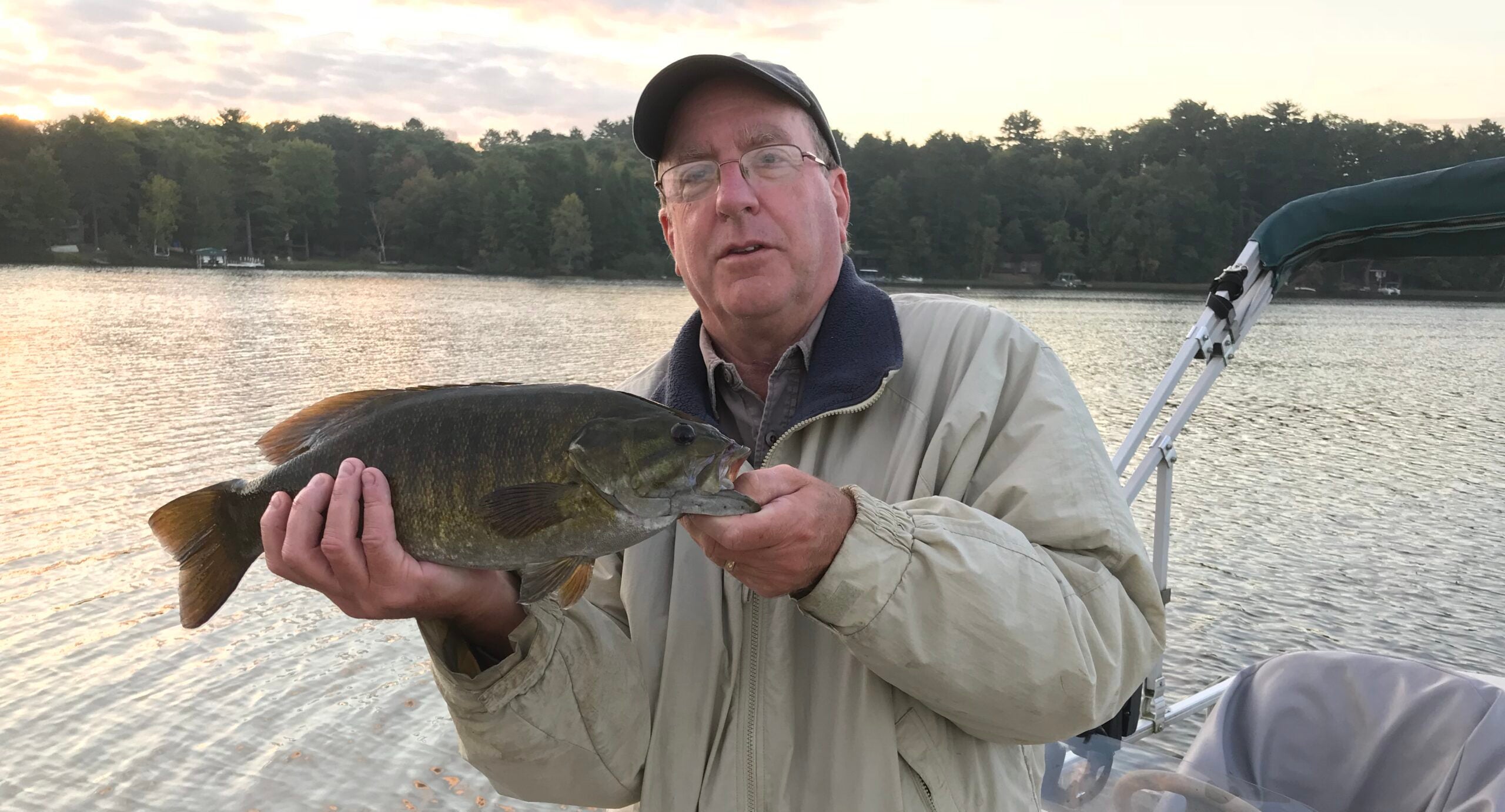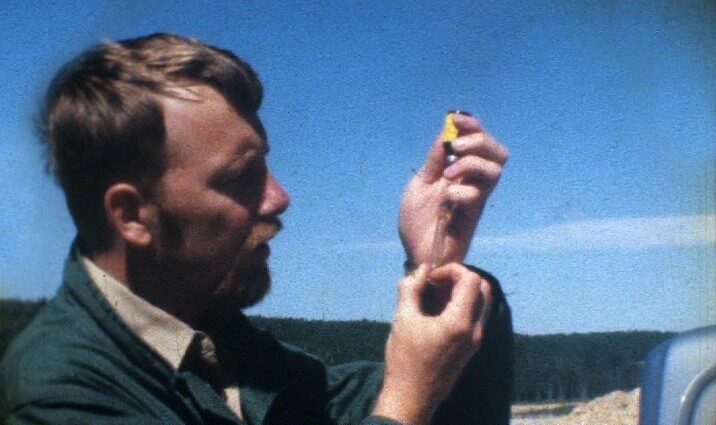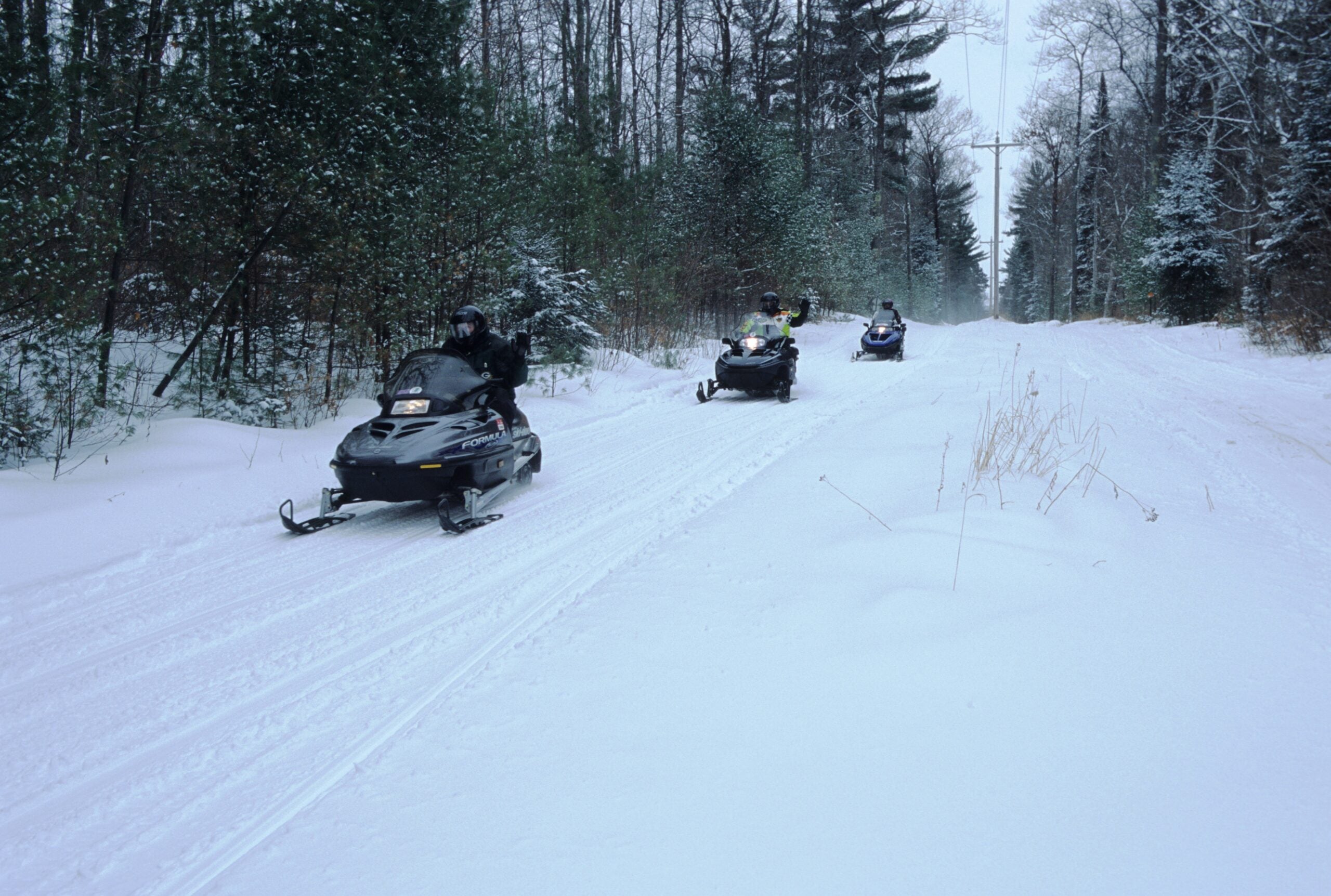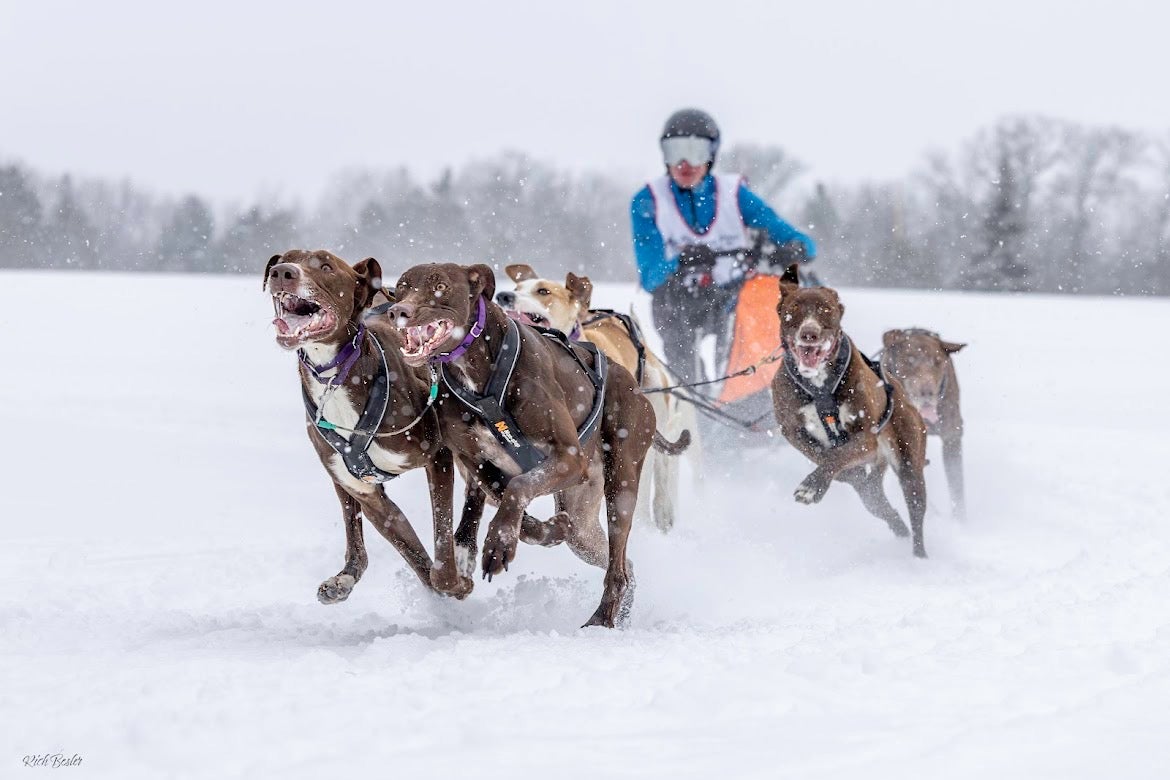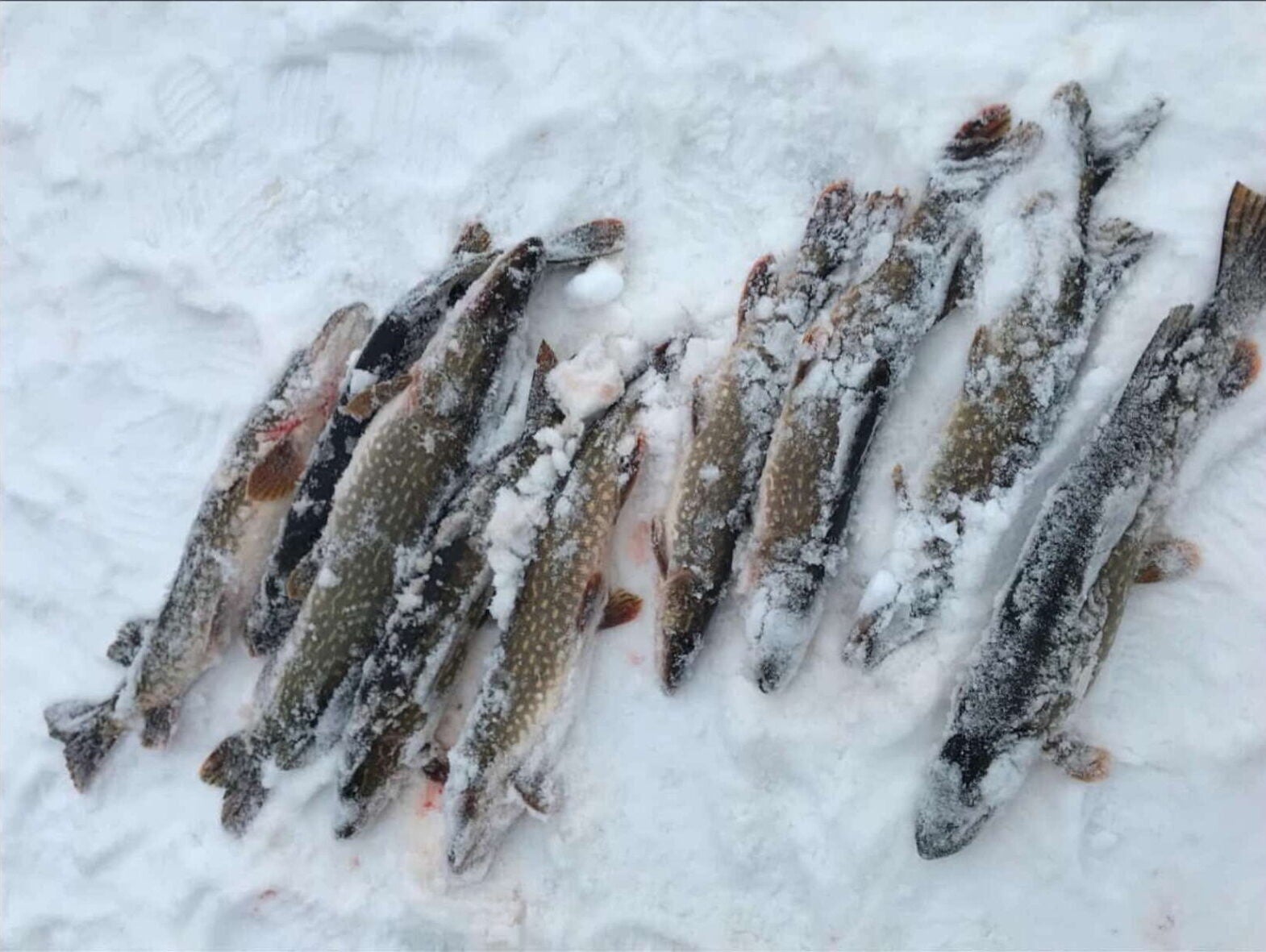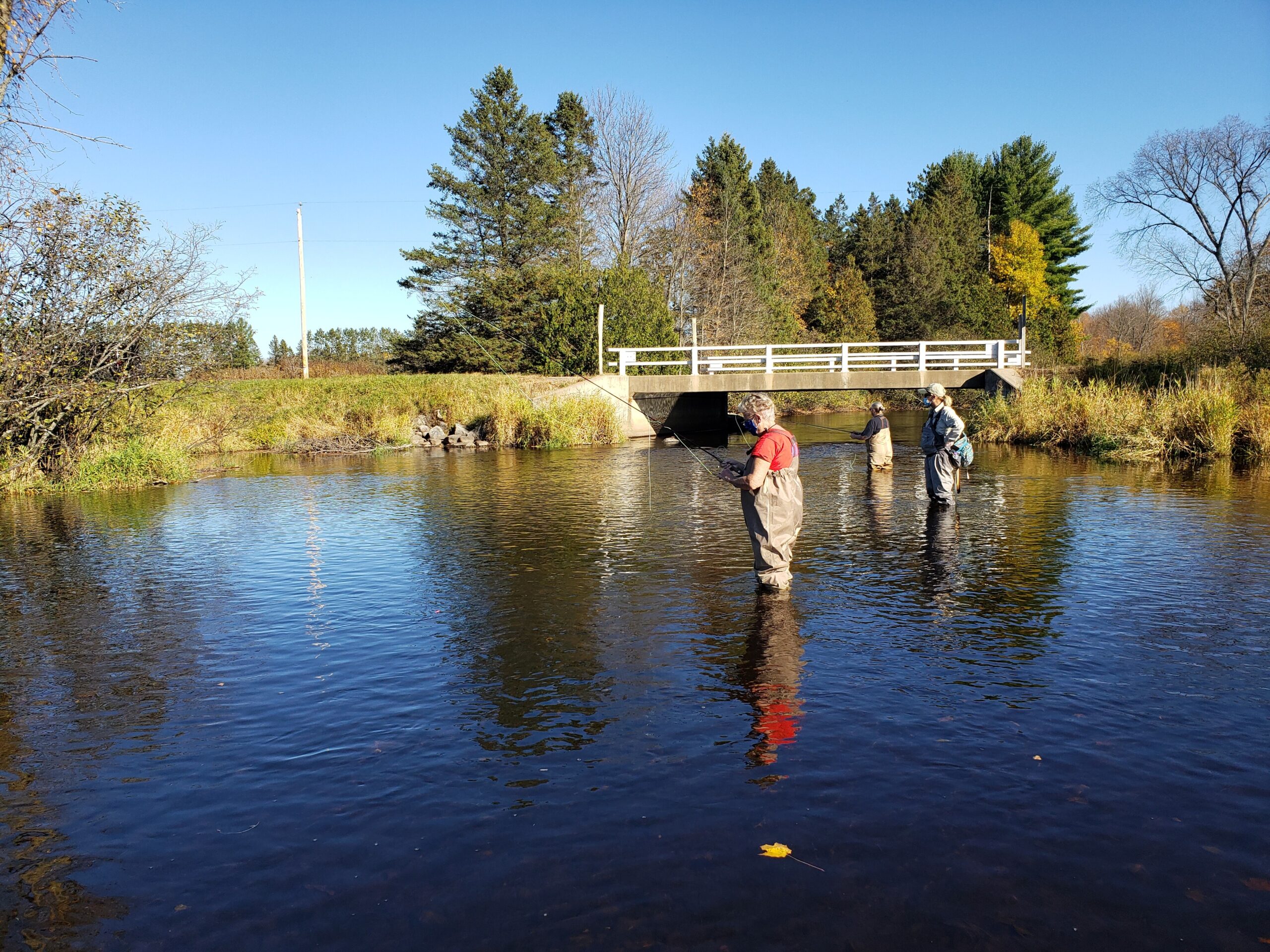Fishing, at its heart, is about much more than just catching fish. It’s about the experiences, connections and lessons that come along with it.
Ted Rulseh, an author from Harshaw, beautifully captures these nuanced aspects of angling in his new collection of short stories, “You Shoulda Been Here Last Week,” released this March by Cornerstone Press.
Drawing heavily on his experiences fishing the serene lakes of northcentral Wisconsin, Rulseh shares narratives filled with wonder, humor, nostalgia and poignant family moments. From the excitement of a child finally landing that first fish to treasured memories of trips with loved ones, his book resonates with anyone who appreciates nature and the bonds formed around it.
Stay informed on the latest news
Sign up for WPR’s email newsletter.
In a conversation with WPR’s “Morning Edition” host Shereen Siewert, Rulseh said his stories go beyond mere fishing tales. They offer readers reflections on life’s broader lessons, including resilience in the face of failure.
“You just have to accept that things aren’t always going to go your way,” Rulseh told WPR. “You can’t stop trying. You have a bad day, but you know the next day is going to be better. You get up in the morning, take a shower and get back out there and do the same things you did the day before, and your luck will finally improve.”
Beyond storytelling, Rulseh is deeply committed to environmental education through his website, The Lake Guy, where he shares insights on lake protection and aquatic science. Through his writing and educational endeavors, Rulseh aims not only to entertain, but also foster a deeper respect and understanding for Wisconsin’s cherished natural resources.
The following interview was edited for brevity and clarity.
Shereen Siewert: Your book takes readers through a lifetime of angling experience — the joys, the thrills, even the failures. What made you want to capture these moments in writing?
Ted Rulseh: I’ve always been a writer, and I like to share my experiences about fishing with other people. One of the best ways to share those experiences is through storytelling. Some stories were written just a few years ago, while others were written 30 years ago or more. I’ve accumulated them over a lifetime.
SS: Tell me about the first time you caught a fish.
TR: I think that would have to be on the East Twin River in my hometown of Two Rivers. My first memory of fishing is going down to the river with my dad and older brother and sister, putting a worm on the end of the hook and pulling out yellow bellied bullhead. That was my first experience fishing. I spent an awful lot of hours on that river as a child.
SS: Fishing is so tied to tradition and family. Which story in your book is particularly meaningful to you when it comes to family connections?
TR: Wow, that’s a tough one. I have two that probably stand out. One is about how my daughter really had truly learned to fish. My daughter, Sonya, was very intense when it came to fishing, and very unhappy if she wasn’t catching anything. But one evening when we were out on the lake, a couple of eagles started circling the sky. She said, “Dad, can I stop and watch them for a while?” And that’s when I knew she had really and truly learned what fishing was about.
The other story is about my son — a traditional trip we took each year to a lake in Waukesha County in springtime when the bluegills were biting. I took him there in June in the summer after he finished chemotherapy treatment for cancer. I was impressed by the seasonal certainties that we experienced every year, knowing that the lake and the fishing experience were always pretty much the same. I was grateful that my son was able to enjoy those seasonal certainties again after being cured of cancer.
SS: The relationship between fishing and food is a pretty strong one. What role does the tradition of cooking and sharing the catch play in your own fishing memories?
TR: One thing we used to enjoy when I was a kid was fishing for suckers each spring off the bridge in Two Rivers. My dad would clean the fish in the basement and scrape the flesh off their bony skeletons. My mom would grind the meat up in her old hand grinder and mix it with breadcrumbs and egg and fry them up like patties. We called them sucker burgers. It was an annual treat for us. Suckers are pretty low brow fare, but we really enjoyed it and I enjoy it to this day.
Now I enjoy cooking fish for breakfast for my two grandsons. They absolutely love coming up north to visit us. And every first morning that they’re here, we have fried bluegill or walleye along with potato pancakes. That’s something they absolutely insist on and expect.
“Opening day is a time of the heart.”
Ted Rulseh
SS: Were there any stories in the book that were particularly difficult or emotional for you to work through as you were writing?
TR: The one about fishing with my son after his chemo treatment, which I already mentioned, where one of the experiences we had was seeing night hawks coming down and flying silently over our heads, almost level with our heads and flying right past us.
The other would be about fishing with my dad. He liked to fish but didn’t have much time when we were younger. You don’t really get a lot of time to fish when you’re raising eight kids. But there was an experience with my dad when he was over 80 and had lost his eyesight to macular degeneration. I was fishing with him in a boat and had to bait his hook for him and take his fish off the hook. I chose not to ruin the moment by mentioning to him how our roles have changed from when I was young.
SS: What is so universal about the experiences you share, even for people like me who don’t fish?
TR: I think that even for people who don’t fish, they know someone who does, or they spend time on lakes and rivers and fishing is a part of that. Someone who doesn’t fish isn’t necessarily disconnected from it. I think they appreciate stories told by someone who is so deeply involved in the activity.
SS: What does opening day mean to you personally?
TR: To me, opening day isn’t necessarily the first Saturday in May. Opening day is a time of the heart. I don’t necessarily even go fishing on that day. To me, it’s the first time that I share an experience on the water.
One time in particular, I went to a lake and was standing on the shoreline, and the moon was reflected perfectly on the still water. I cast a lure out there, just for fun, and to see if I could hit the moon. And just as the bait hit the reflection of the moon, a fish came up and smashed it, scattering the droplets of moonlight. To me, that was the perfect opening day.
If you have an idea about something in central Wisconsin you think we should talk about on “Morning Edition,” send it to us at central@wpr.org.
Wisconsin Public Radio, © Copyright 2025, Board of Regents of the University of Wisconsin System and Wisconsin Educational Communications Board.

